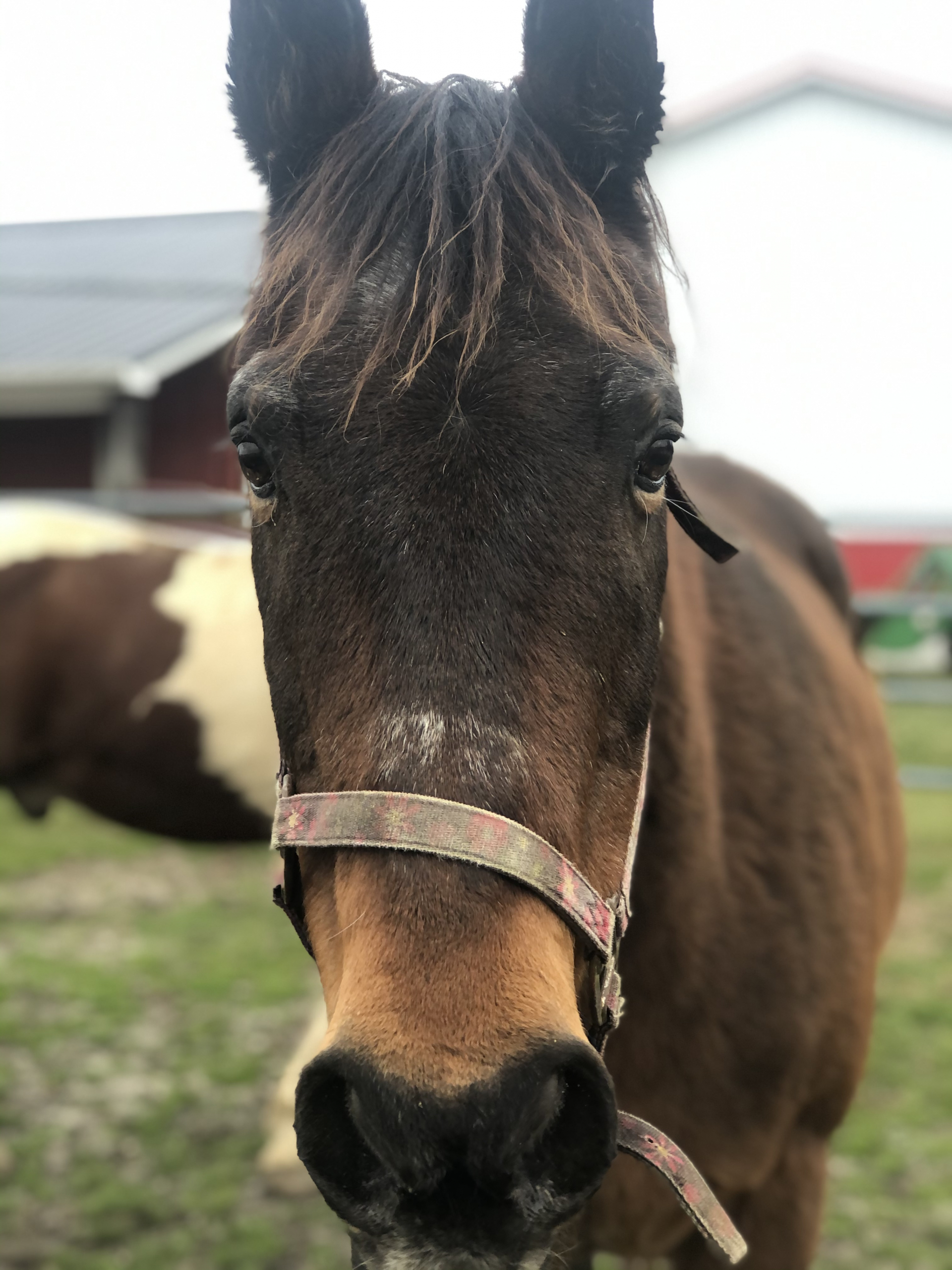Disclaimer: Every horse and owner has different circumstances and needs – ultimately, the time to decide will depend upon what you and your horse see, feel, and need. Each animal is unique and your relationship will help you to know when the time is right. The points below are from my experiences as a veterinarian and what I’ve seen when both my clients and I personally have had to make this difficult decision.
Whether it’s your first horse, your heart horse, or one of many horses in your life, making the decision to euthanize your companion can be one of the hardest decisions to make. Some horses make it 30-40 years before having any major health problems, while others fall ill or have more troubles as they age. When it is time to decide on putting a horse down, here are some of the key factors that I’ve used to help owners:
-
- Eating/Weight loss: Sometimes as horses age, it becomes more and more difficult to keep weight on them. Maintenance such as dental care, deworming, and increasing nutrition sources can help, but it can become overwhelmingly difficult when they stop having the appetite they used to or if they have an underlying disease that is causing weight loss. This weight loss often shows as significant muscle loss around the neck, topline, and hindquarters or ribs predominantly showing that won’t go away with extra nutrition. Another indicator is a loss of the excitement to eat in a horse that has historically had a great appetite.
- Excitement: We often look forward to letting our horses out into their pasture or starting a favorite activity because of how excited they are to kick up their heels and have a little fun. When they no longer appear excited to go out on a beautiful day or don’t desire to do these activities after years of loving them, it indicates to me that they either need more support for their comfort to continue enjoying their pasture or that it may be nearing their time.
- Comfort: Arthritis is a common enemy of both the aging horse and human. It can be managed with long-term pain control, joint supplementation, low-impact exercise, and other methods, but it may eventually become overwhelmingly painful. This can manifest as having significant difficulty trotting or even walking, getting stuck in places because of an inability to move a joint, or especially laying down and being unable to get back up. This is one of the most common problems I see in senior horses that lets us know it is nearing their time. For a time we can assist them to stand if they just need a bit of help or medication, but it’s important to prioritize the overall comfort of the horse and the safety of the owner when assisting their horse.
- Disease and injury can affect both young and old horses alike. Severe colic that is refractory to treatment, fractures, wounds, and other acutely traumatic events can result in the need for a sudden decision about euthanasia. Other diseases like cancer, neurologic disease, and metabolic disease can affect quality of life. For these conditions, I look to my previous points such as weight and comfort to decide when it’s time to lay them to rest.
- Time of year: The last factor I weigh into my euthanasia decisions is the time of year. Especially in the state of Michigan, the winter is not an easy time for horses. Going into the fall, we like to see horses with a bit of extra nutrition to brace for the bitter cold and snow. Blanketing can help reduce weight loss, but a horse that can’t keep weight on during the summer is going to have even greater difficulty in the winter. Another hurdle they face is walking in muddy or icy conditions where they can fall and may be unable to get up. It is far more difficult to assist a horse to stand in the winter than during the summer or fall.
Even with all of these points, it will still never be easy to make the decision to euthanize. Some of our horses are with us for our entire lives or even longer. They have ties to our families, friends, and in some cases, to those we have already lost. No matter the situation, know we’ll be there for you and for your horse.

